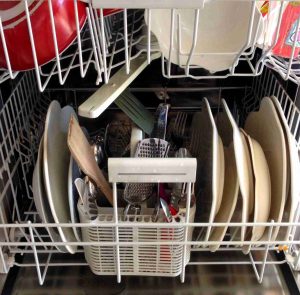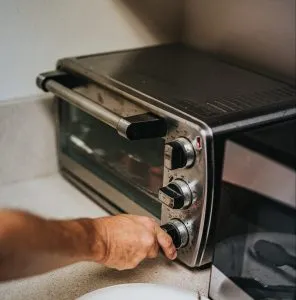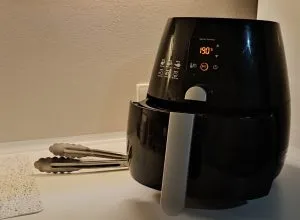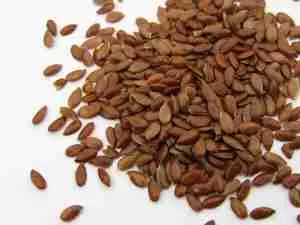Contents
ToggleWhy Does Poop Smell Bad in the First Place?
To begin unraveling this pungent puzzle, we first need to understand what gives poop its characteristic smell. Foul-smelling poop can happen due to a variety of factors, the primary one being the food we eat. Consuming certain foods, medications, or even undergoing specific treatments can alter the odor of your poop. When the food you eat is digested, it’s broken down into various compounds that are then expelled from your body, often carrying a scent reflective of the ingested material.
Another contributor to the distinct smell of poop is the trillions of bacteria residing in your gut. These microscopic tenants, part of your microbiota, help digest food, synthesize vitamins, and keep harmful pathogens at bay. However, in their process of breaking down food remnants, they produce a cocktail of gases, including methane, hydrogen, and, importantly, sulfur compounds, all of which contribute to the typical odor of feces.
Sulphur-Rich Foods and Poop Smell
Speaking of sulfur, let’s delve a bit more into why this particular compound is a key player in our scented scenario. Found naturally in many foods like broccoli, cabbage, and eggs, sulfur is a necessary nutrient. However, when we consume these foods, the sulfur is metabolized by our gut bacteria and transformed into hydrogen sulfide, a gas famous for its ‘rotten egg’ smell.
Adding fuel to the stinky fire, indulging in alcohol or taking supplements with sulfates can further enhance this sulfurous symphony. The alcohol not only aids in the production of more sulfur gases but also alters the balance of your gut flora, potentially leading to even smellier output.
Antibiotics: Friend or Foe?

While antibiotics are necessary and lifesaving medications, they are not selective in their bacteria-killing spree. Alongside the harmful bacteria, they often wipe out a significant portion of your gut flora. This disruption in your gut ecosystem can lead to changes in the byproducts produced during digestion, causing some people to experience particularly smelly poop during or after a course of antibiotics.
When Poop Smell Indicates Health Problems
Changes in the smell of your poop aren’t always diet or medication-related. In fact, they can sometimes signal changes in your body, acting as an olfactory alarm system for potential health problems. Conditions like diabetes, infection, or malabsorption issues that affect the way your body absorbs nutrients can manifest themselves in changes in stool smell. For example, a sweet or fruity stool smell could indicate uncontrolled diabetes, while a particularly foul odor may hint at an infection.
The Art of Prevention: Avoiding Foul-Smelling Stools
There are ways to prevent your bowel movements from smelling like a warzone. Dietary changes can often make a significant difference. For instance, reducing the intake of raw or unpasteurized milk can help prevent foul-smelling stools, especially if you have lactose intolerance. Ensuring a balanced diet, rich in fiber, and staying well-hydrated can keep your digestive system humming along nicely, reducing the chances of smelly surprises.
Making Poop Smell Vanish
But what if you’ve already crossed the Rubicon and are now looking for ways to reduce the odor? If your smelly poop doesn’t seem to be linked to something serious and you’re not having other severe symptoms, there are a few things you can do to fight back. Staying hydrated and maintaining a balanced, fiber-rich diet can help keep your digestive system healthy, which in turn can mitigate the intensity of your poop’s odor.
But what about those lingering smells on your skin? If you’ve tried washing your hands and the smell still sticks, don’t despair. There are specific techniques and products that can be particularly effective. For in-depth information on dealing with this issue, check out this comprehensive guide on how to get rid of the smell of poop on your skin. This resource offers practical solutions that can help turn a potentially embarrassing situation into a non-issue.
The Lingering Question: Why Does Poop Smell Linger on Skin?
Now, back to our original question, why does poop smell linger on the skin? Here’s where the science gets interesting. Skin, as you might know, is slightly acidic, and this acidity can react with the sulfur compounds in poop to create thiol, a super-stinky substance. So, when you touch poop, the sulfur compounds transferred onto your skin can react to form thiols, and thus the smell lingers.
Furthermore, our skin is filled with tiny crevices and folds, and these can trap tiny particles of fecal matter that continue to emit odor. Despite our best attempts at washing, these particles can be stubborn and hard to remove, requiring more than a cursory rinse under the tap.
Why Does the Smell of Poop Linger for So Long?
Have you ever asked yourself why the smell of poop tends to linger, permeating the air long after the “crime” has been committed? It’s not just you, and there’s a scientific explanation behind this phenomenon.
Feces contain a variety of sulfur compounds which are notorious for their resilience and potent smells. As explained earlier, these compounds are a result of the breakdown of sulfur-rich foods by gut bacteria during digestion. When expelled, these compounds mix with the air and can remain suspended for quite a while, leading to a lingering odor.
Airflow (or lack thereof) also plays a big role. In closed, poorly ventilated spaces, the smell of poop can last for an uncomfortably long time because the odor molecules are trapped. On the other hand, in well-ventilated spaces or outdoors, the smell dissipates more quickly as fresh air comes in and displaces the odor-filled air.
Another important factor is humidity. In more humid conditions, our sense of smell becomes more acute, making any existing smells, including that of poop, more noticeable.
Why Does Poop Smell Not Wash Off Easily?
If you’ve ever felt that no amount of hand washing rids your skin off the smell of poop, you’re not alone. It’s a common phenomenon, and the reasons are rooted in both the chemical nature of the smell and the physical structure of our skin.
As mentioned earlier, the sulfur compounds present in poop can react with the slightly acidic pH of our skin to create thiols. These thiols are stubborn and notoriously smelly molecules that are harder to wash away with regular soap and water.
Moreover, our skin is not a smooth surface. It has many folds, crevices, and a unique texture that can trap tiny particles of fecal matter. Even after washing your hands, some of these particles may remain lodged in the microscopic recesses of your skin, continuing to emit their distinctive odor.
Washing your hands correctly can make a big difference. Ensure you’re using warm water and soap, lathering for at least 20 seconds, and scrubbing all areas of your hands, including under the nails. This will increase your chances of dislodging any trapped particles and breaking down stubborn thiols.
If the smell persists, you might consider using an acidic soap or a product specifically designed to combat sulfur smells. Additionally, washing your hands with toothpaste (which contains a mild abrasive and strong scent) can sometimes help neutralize the smell.
Remember, dealing with poop is a part of life. Even though its smell can be unpleasant and tenacious, understanding why it happens and how to combat it can make your experience a little bit easier.
 | VALITIC Kojic Acid Dark Spot Remover Soap Bars with Vitamin C | CHECK PRICE |
 | Kojie San Skin Brightening Soap - Original Kojic Acid Soap for Dark Spots, Hyperpigmentation, & Scars | CHECK PRICE |
 | Pure Kojic Acid Skin Brightening Soap for Dark Spot & Glowing Skin, Moisturizing for Face & Body, Acne Scars, Melasma, Uneven Skin | CHECK PRICE |
 | Dermaharmony Sulfur and Salicylic Acid Bar Soap | CHECK PRICE |
 | Bee & Flower Shanghai Sulfur Soap | CHECK PRICE |
 | Naturasil Natural Tinea Versicolor Treatment Soap With 10% Sulfur | CHECK PRICE |
 | Colloidal Silver Soap | CHECK PRICE |
When to Seek Medical Help

While it’s normal for poop to have a certain smell, changes in its usual odor, especially if accompanied by symptoms like diarrhea, fever, chills, or unexplained weight loss, should be taken seriously. These could signal something more severe and warrant a trip to the doctor. Remember, your health should never be taken lightly, and it’s always better to be safe than sorry.
FAQ
1. What causes poop to smell so bad?
The smell of poop primarily comes from the gases produced by the bacteria in your gut as they break down food. These gases include hydrogen sulfide, a sulfur-containing compound known for its distinct ‘rotten egg’ smell.
2. Can the smell of my poop indicate a health problem?
Yes, changes in the smell of your poop can sometimes be a sign of health issues. For instance, a sweet or fruity stool smell could indicate uncontrolled diabetes, while a particularly foul odor might point toward an infection. Always consult a doctor if you notice significant changes in bowel habits or smell.
3. Can dietary changes impact the smell of poop?
Absolutely. Consuming certain foods, particularly sulfur-rich ones like broccoli, cabbage, and eggs, can result in smellier poop. Alcohol and supplements with sulfates can also increase the sulfurous smell.
4. Why does the smell of poop linger on my skin even after washing?
This can happen due to a combination of factors. One is the reaction between the sulfur compounds in poop and the acidity of your skin, creating smelly thiols. Secondly, tiny particles of fecal matter can get trapped in the skin’s tiny folds and crevices, continuing to emit odor even after washing.
5. How can I remove the lingering smell of poop from my hands?
Firstly, ensure you’re washing your hands thoroughly with warm water and soap, scrubbing all areas including under the nails. If the smell persists, try using a mildly acidic soap, a product specifically designed to combat sulfur smells or even toothpaste.
6. Why does the smell of poop linger in the air for so long?
The smell of poop can linger due to the resilient and potent sulfur compounds it contains. These compounds can remain suspended in the air, particularly in poorly ventilated or humid spaces.
7. Should I see a doctor if my poop smells unusually bad?
If you notice a significant change in the smell of your poop, particularly if it’s accompanied by other symptoms like diarrhea, fever, chills, or unexplained weight loss, it’s always a good idea to consult with a healthcare professional.
Wrapping up
In summary, the lingering smell of poop on the skin can be attributed to both a chemical reaction creating extra stinky compounds and the physical trapping of fecal particles in the skin’s texture. To combat this, consider using a mild acidic soap (since thiols are neutralized by acid) and be sure to scrub thoroughly to dislodge any trapped particles.
The realm of poop and its smell, though not a glamorous topic, is one rich with fascinating science and important implications for our health. So, next time you catch a whiff of something funky on your hands after an encounter with the toilet, you’ll know why the smell is there and what you can do about it. After all, understanding is the first step to tackling any problem, even when that problem is as down-to-earth as the smell of poop.
Additional Reading
For those interested in exploring more related topics, the following resources provide a wealth of information:
- How to Clean Toilet Plunger: After an encounter with a stubborn toilet, your plunger might be in need of a good clean. This guide provides step-by-step instructions on how to keep your plunger hygienic and ready for the next use.
- I Dropped My Vape in the Toilet: Accidents happen! If you’ve dropped your vape in the toilet, this piece offers practical advice on what to do next.
- Circumference of a Toilet Paper Roll: Ever wondered about the size of a toilet paper roll? This article provides the answer and delves into why it matters.
- Skunk Smell in Your House: If you’re dealing with a stubborn smell that’s not poop-related, this guide on handling a skunk smell in your house could come in handy.
- How to Unclog a Toilet When Nothing Works: Stuck with a clogged toilet? This comprehensive guide offers multiple solutions when nothing else seems to work.
These articles should provide further insights into the world of plumbing, hygiene, and the science of smells. Happy reading!























































